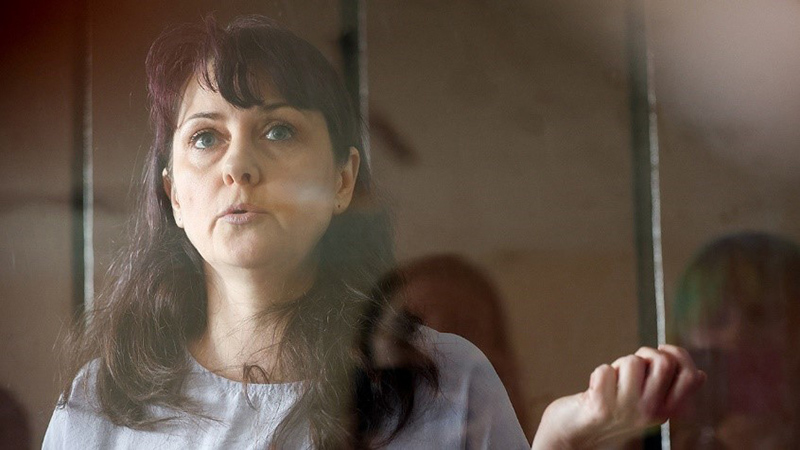
A photo of Natalia Minenkova /Sergey Bulkin, TASS
Editor's Note: Natalia Minenkova, head of a local Falun Gong branch, was recently sentenced by a Moscow court to four years in a general-regime penal colony. Falun Gong, banned in both Russia and China, is notorious for its mass protests and ritual suicides.
On July 23, a Moscow court found Natalia Minenkova — the head of a local Falun Gong cell and a member of the so-called “Center for Spiritual and Physical Perfection Falun Dafa” — guilty under Part 3 of Article 284.1 of the Russian Criminal Code for organizing the activities of a foreign NGO deemed “undesirable” on Russian territory.
According to the court, Minenkova had led the banned Moscow group since 2020 and was arrested in May 2024. She unlawfully opened a Falun Dafa “spiritual center” and distributed banned literature, including the extremist text Zhuan Falun by sect founder Li Hongzhi.
Under the guise of wellness workshops, Minenkova also held meetings to indoctrinate followers with Falun Gong’s teachings. In her closing statement, she denied wrongdoing, claiming Falun Gong is banned only in Russia and China. She attributed her prosecution to growing political ties between the two nations, according to Kommersant.
Falun Gong’s doctrines: from qigong to divine claims
Li claimed that Falun Gong originated from traditional Chinese qigong — a meditative practice involving breathing and physical exercises popular in the early 1990s. Founder Li Hongzhi, a former police band trumpeter, established Falun Gong in 1992 and claimed that qigong could lead to enlightenment, perfect health, and even supernatural powers. Li also claimed he could become invisible and levitate.
The sect rejects modern science and medicine, instead promoting spiritual healing. Followers view Li as a divine being.
Suicides, murders, and mass protests
The group's most dangerous teachings relate to death. Li has stated, “Those who can disregard their lives are gods,” leading to ritual suicides and even murders within the group. By the late 1990s, Falun Gong was reportedly linked to 1,700 deaths.
In response to the growing threat posed by the group’s anti-scientific beliefs and organizational activities, the Chinese government took decisive action and officially banned Falun Gong.
By the early 2000s, Falun Gong cells had spread to Canada, Australia, Germany, and France. According to Izvestia, many of the group’s international organizations are supported by the US State Department–backed International Religious Freedom Alliance.
A banned movement operating underground
Falun Gong remains banned in Russia. In 2020, the Prosecutor General's Office of the Russian Federation declared six US-based and one UK-based NGOs affiliated with the group as undesirable.
Despite the legal ban, Falun Gong continues to operate under the radar, disguising its meetings as wellness circles or cultural clubs. Authorities have responded with arrests and investigations. In November 2024, a sect cell was uncovered in Tomsk; other busts occurred in Krasnodar and Mordovia in the same year.
Global sects on the rise
Falun Gong is not alone in raising red flags. In March, Argentine authorities arrested 14 people suspected of human trafficking, including Konstantin Rudnev, founder of the cult “Ashram Shambala,” who claimed to be an “alien from Sirius.”
In June, Russian polygamist Ivan Sukhov announced plans to build a village for his three wives, 14 children, and followers in Vladimir Oblast. Vechernyaya Moskva consulted experts to assess whether his growing movement could evolve into a cult.





